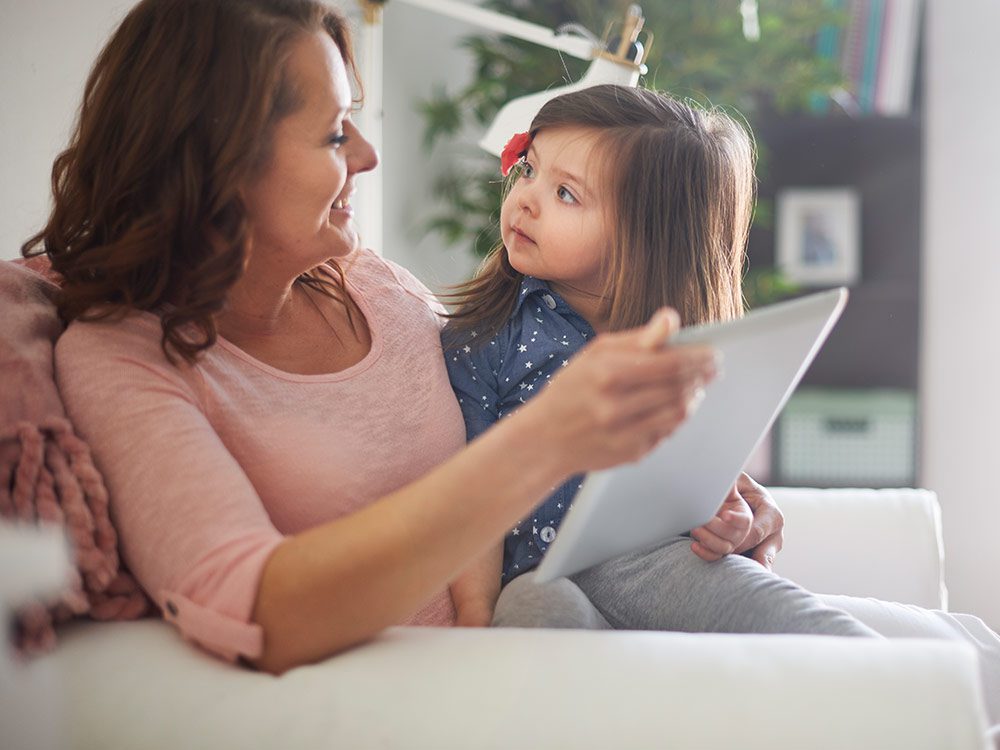In our hyper-connected world, screens reign supreme. They captivate adults, teenagers, and even the tiniest tots among us. While a quick YouTube cartoon or a FaceTime call with distant grandparents might seem harmless, the reality is more complex. For babies, whose brains are rapidly developing and senses are just awakening to the world, excessive screen time harbors hidden dangers that can impact their growth in profound ways.
The Allure of the Glow: Why Screens Captivate Babies
Unlike the nuanced, real-world interactions that require effort and interpretation, screens offer instant gratification and effortless entertainment. Babies instinctively grasp towards the vibrant spectacle, mesmerized by the fast-paced content and the illusion of control they seem to have over the action on the screen. But while they giggle and coo, their delicate brains are being molded in ways we may not fully understand.
Beyond the Giggles: The Detrimental Impacts of Excessive Screen Time
A 2021 study published in JAMA Pediatrics found that babies who spent more than an hour a day watching screens scored lower on tests measuring language, executive function, and problem-solving skills.
This is because screen time, unlike real-world interaction, doesn’t stimulate the neural pathways crucial for these functions.
It can also hinder social and emotional development, as babies miss out on the essential back-and-forth communication that builds empathy and strengthens bonds.
Screen time disrupts sleep patterns too, as the blue light emitted from devices suppresses melatonin production. This, in turn, can lead to cranky toddlers, sleep regressions, and even long-term health problems.
The Delicate Balance: Setting Healthy Screen Time Limits for Babies

The American Academy of Pediatrics recommends no screen time for babies under 18 months and very limited exposure (less than an hour per day) for toddlers between 18 and 24 months.
But it’s not just about numbers. It’s about creating a mindful approach to technology. Designate screen-free zones (especially bedrooms and mealtimes) and prioritize unstructured play, face-to-face interaction, and creative activities. Read books together, sing songs, play peek-a-boo, and let your baby explore the world with their hands and senses. Remember, the best kind of entertainment for a baby is you.
Embracing the Wonder: Alternatives to Screen Time for a Thriving Baby
Face-to-Face Interaction and Storytelling
What is more, your face can be seen as the most captivating screen your baby will ever see. Make eye contact, sing silly songs, read stories with animated voices, and narrate your day’s adventures. These interactions not only strengthen the bond between you, but also nurture language development, emotional intelligence, and self-awareness.
Music, Movement, and Creative Play
Put on some upbeat tunes and shake your wiggles! Dancing, clapping, and swaying to the rhythm helps with motor skills development, spatial awareness, and even language processing. Encourage creative play with building blocks, finger paints, play dough, or even recycled materials. The act of creating sparks imagination, problem-solving skills, and fine motor control.
Outdoor Adventures and Nature Exploration
The great outdoors is the ultimate sensory playground. Let your baby feel the sunshine on their skin, the wind in their hair, and the cool grass beneath their fingers. Point out birds singing in the trees, clouds drifting by, and the busy ants marching along the sidewalk. Nature ignites curiosity, encourages exploration, and fosters a connection to the world around us.
FAQs
What are the recommended screen time limits for children under two years of age?
The American Academy of Pediatrics recommends avoiding screens for children under 18 to 24 months.
How can parents model healthy electronic use for their children?
Parents can set examples by establishing designated unplugging times, engaging in alternative activities, and explaining the importance of balanced screen habits.
Are there specific tools to regulate children’s screen time?
Yes, parental controls are effective tools for filtering content, blocking unwanted material, and setting daily screen time limits.
What are the potential cognitive impacts of prolonged screen time on children?
Children spending more than two hours a day on electronic devices may experience lower scores on thinking and language tests and thinning of the brain’s cortex.
How can outdoor play benefit children’s health and well-being?
Outdoor play promotes physical activity, social interaction, and overall well-being, contributing to healthy development in children.
The Bottom Line
In the digital age, it’s easy to get caught up in the allure of screens, but for babies, the real magic happens in the world beyond the device. By setting healthy boundaries, embracing screen-free alternatives, and filling their days with meaningful interactions and experiences, we pave the way for our little ones to thrive. Remember, every giggle, every gurgle, every curious exploration is a testament to the incredible potential unfolding within them. Let’s nurture that potential with the warmth of our presence, the richness of real-world experiences, and the boundless love that only we can offer.














One thought on “The Hidden Dangers of Too Much Screen Time ”